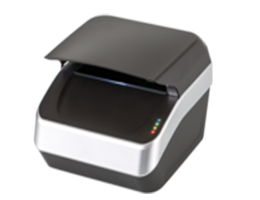Passport Scanners
Plustek Passport Scanners are made to work best in places with a lot of security and in businesses that deal with consumers. These gadgets can quickly and accurately verify someone's identity in real time, no matter if you're running a hotel, bank, hospital, airport, or casino.
Passport Scanners
A Fast and Safe Way to Confirm Identity in Every Field
Businesses and organizations in the United Arab Emirates and throughout the world are starting to rely on passport scanners more and more since they are important for security and service efficiency. PlusTek is changing the way people prove their identification via driver's licenses, passports, and national ID cards with its cutting-edge scanning technology. It is one of the most trusted names in the business.
PlusTek Makes It Quick and Easy to Check IDs
PlusTek ID Scanners are made to work best in places with a lot of security and in businesses that deal with consumers. These gadgets can quickly and accurately verify someone's identity in real time, no matter if you're running a hotel, bank, hospital, airport, or casino.
PlusTek scanners are great at reading both the pictures and the embedded chip data on ID cards. They can read more than 6,500 various types of ID cards from around the world, including GCC IDs with Arabic text.
Global Compliance Is a Company You Can Trust
PlusTek products are used in over 145 countries and are made to meet both local and international compliance needs, like GDPR in Europe and data retention rules in the UAE and Saudi Arabia.
This means that hotels can easily follow the rules for registering visitors in their area. It makes sure that government entities may safely log access and keep track of audits. PlusTek gives your business the following benefits:
- Digital documents that are safe
- Instant verification of identity
Managing and keeping legal data safe
PlusTek Passport Scanners
The SecureScan X50 is one of PlusTek's more advanced versions, and it is made to perform in circumstances where a lot of scanning needs to be done. It is made up of:
- Both sides of passports and ID cards are scanned
- High-precision Optical Character Recognition (OCR) for better data extraction
- Smart cards and chips with built-in reading capabilities
- Flash camera technology to find fake or altered IDs
- iPad system works for checking in guests in their rooms
- Reading Arabic and changing Hijri dates to Gregorian dates for Saudi Arabia
OCR is one of the most important features since it lets you quickly digitize data from scanned documents, which cuts down on the need for people to enter data, lowers the number of mistakes, and saves time. OCR swiftly processes and stores information like names, birth dates, and document numbers.
Important Parts in a Flash
- Detecting fraud in a flash camera.
- Scanning papers from both sides.
- Reading chips and smart cards.
- VIP check-ins that work with iPads.
- Changing Hijri dates into English (great for the UAE and KSA).
- Digital storage for procedures that don't use paper and are good for the environment.
- Automated reminders (for birthdays, ID expiration, etc.).
- Full OCR functionality for fast and accurate data entry.
Why Buy Passport Scanners from an Authorized Supplier?
Frequently Asked Questions
Yes. They can read more than 6,500 different types of ID from around the world and can understand Arabic text in documents from the GCC
Yes, of course. All of the most popular hotel property management systems work perfectly with both passport and driver's license scanners.
Yes. OCR is an important part of devices like the SecureScan X50 since it lets you digitize documents and get data right away.
- Direct-to-card printers print directly onto the card’s surface.
Retransfer printers first print the image on a film, then transfer it to the card. Retransfer printers offer better image quality and are ideal for smart cards or uneven surfaces.
These scanners are used by the government, healthcare, entertainment, hospitality, and financial industries to safely check people's identities.
An ID scanner helps confirm someone's identity by capturing and verifying information from licenses, ID cards, and passports.


